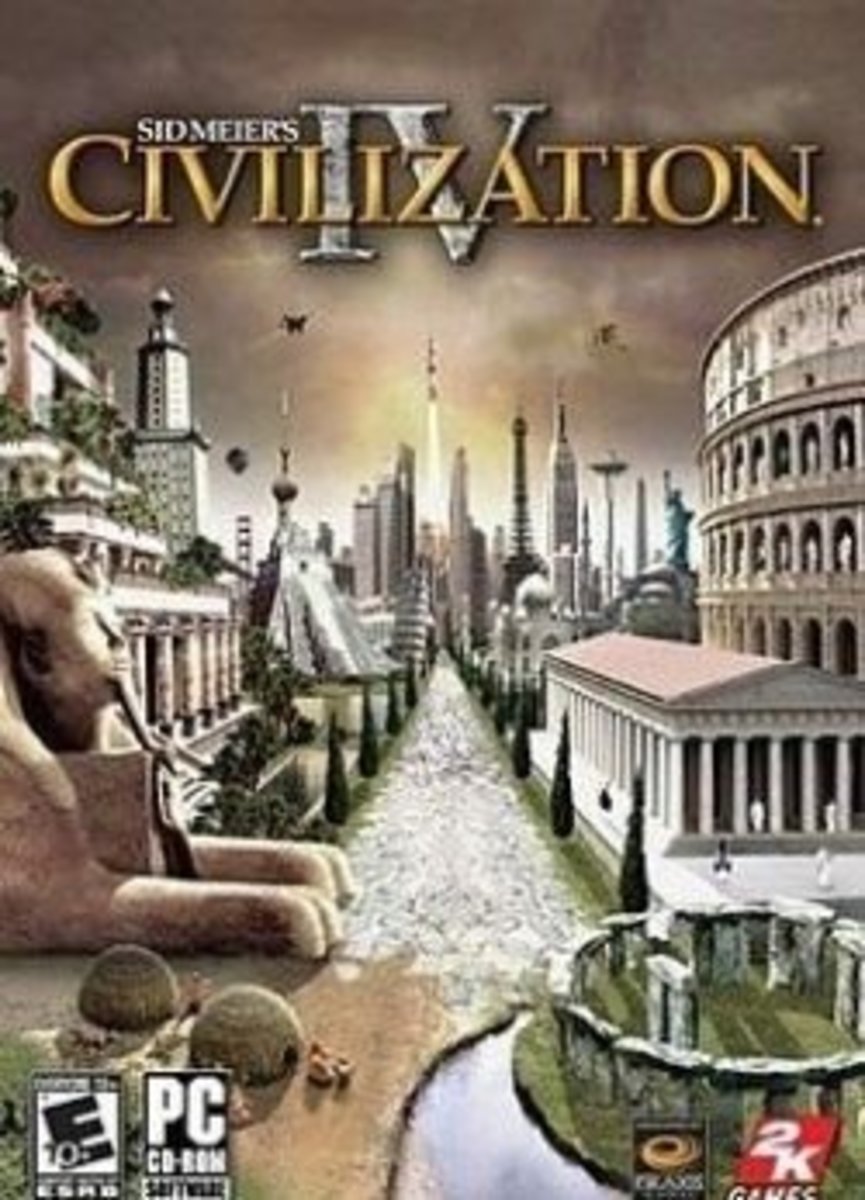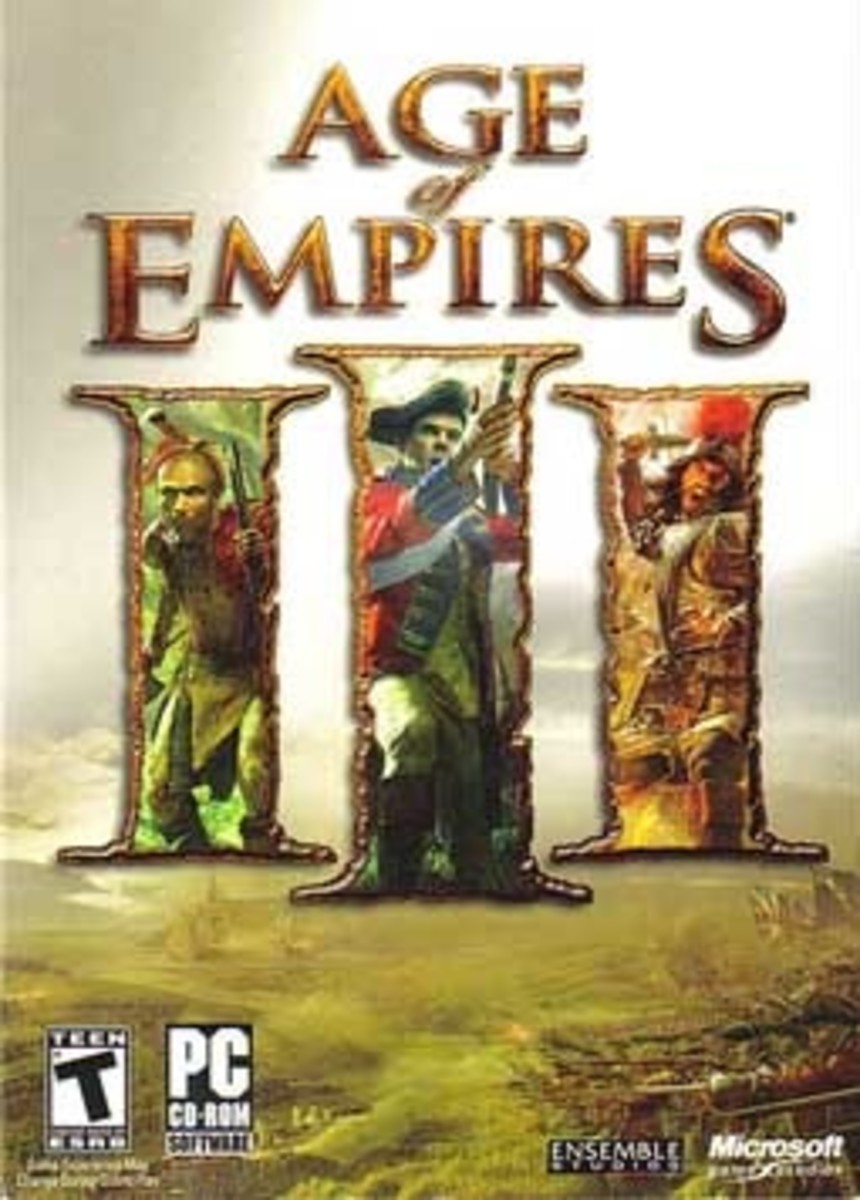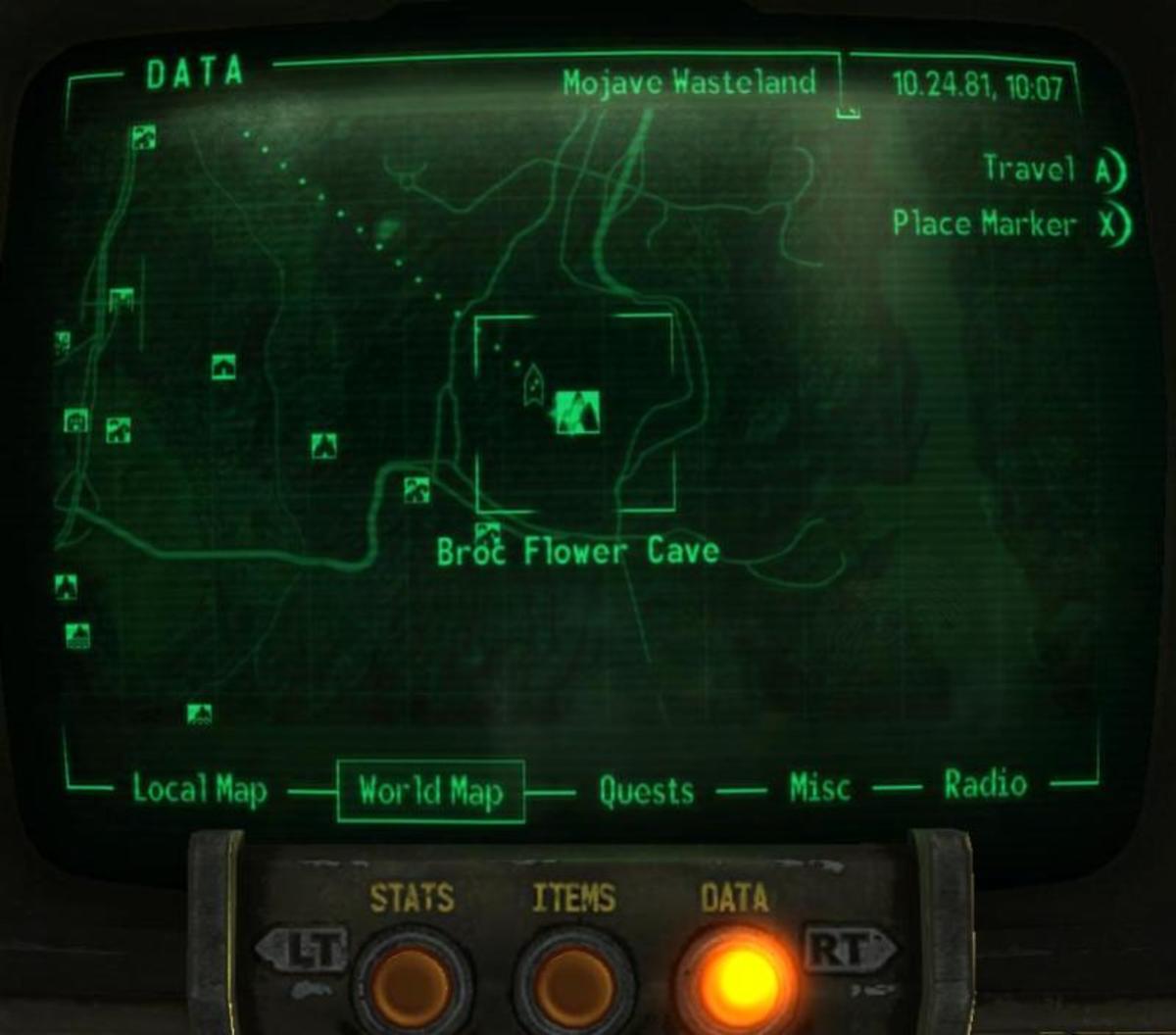Civilization Revolution: A Review
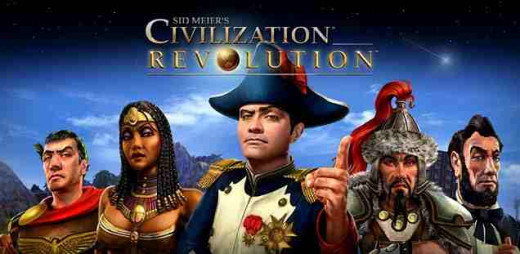
Viva La Revolution!
If there's two thing I've noticed when it comes to the strategy game genre, it's that they can seem off putting, but they're also terrific. Video games are not only a place to kick back and relax, and feel accomplished by sitting on your backside; they're also a science, and you could be leading armies with a simple controller or a headset rather than maps and figurines. And I don't need to be told that there's thousands out there who have achieved glory in their own bedroom rather than a maproom!
But many don't see this aspect, mostly because they probably haven't experienced it for themselves or just because they don't like the genre. On multiple occasions I've seen these games criticised for what they are, rather than what they try to be. My honest opinion on the subject is that if you have zero strategy experience and are just reviewing a game after playing a few missions, don't bother reviewing the game. It's a genre that's for many, but not all, and doesn't welcome everybody with open arms.
But Civilization Revolution isn't like that - it's a great place to start if you're a strategy gamer, and there's multiple ways of winning so if you don't fancy going for wiping out everyone on the map, you'll still enjoy technology victories, economic victories and cultural ones too! If you're planning on finding your feet with the Strategy genre, this is the place you should step up to first.
Sid Meier, a familiar name to strategy and sim gamers alike, designed this addition to the franchise much like the others and downloadable content thereof. The game was released in Mid June 2008, and was made for the PS3, X360 and the Nintendo DS. However due to lack of developers, the game didn't see a PSP or Nintendo Wii release, and the DS version is obviously considerably different to its console counterparts. It was also given two awards, one by IGN as the "best Strategy game for the X360" and the British Academy Video Game Awards gave it one too, both in the same year.
But Civ-Rev is an unsung hero in strategy, as it was often dismissed - and still is - for its 'cartoonish art style', and while that may be true, it doesn't stop the game from being as enjoyable as it is. To me this is the perfect blend of war and civilisation building I've ever seen, getting bonus points for being on console.
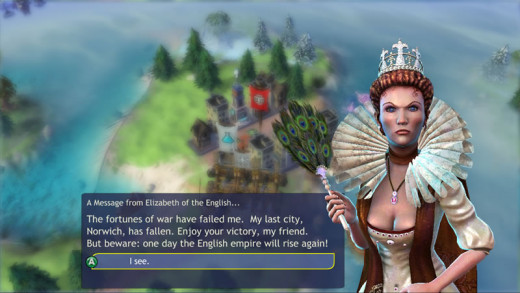
The Boy who would be King
Before you begin your conquest for world domination, you first have to choose one of sixteen leaders to play as, each with their own strengths and weaknesses as they enter different stages of time, going from the Stone Age to the Modern Age. My personal favourite has to be Abraham Lincoln, who has the units I'll use the most such as Sherman Tanks and Flying Fortresses much later on, and he starts the game with a Great Person (more on this later). It's good that you have different leaders from all kinds of eras, such as a Zulu leader, or perhaps you'd want to play as Elizabeth Royal, maybe even a German Kaiser! There's so many possibilities, each of which are - or were - real people.
Every game starts out in the year 4000 BC, but this shouldn't be too much concern as all era determines is what perks you get and when. The years go by with each turn, and eventually slow down as you get to the Modern Age. They also advance as your settlement(s) and technology does, meaning that the 'Industrial Age' can come in the year 1400 if you're fast enough! You begin with very little, a small village and some soldiers. It's here where you can just begin the game at your own pace, without worry of being obliterated (as everyone else starts with similar technology and unit types to begin with) or overinflated with cash. Have some practice with the Barbarians nearby, or get some gold from the local friendlies, and make new allies with the nearby settlements. But be careful - it doesn't take much to tick them off!
Whilst your building your empire, be sure to take in some advice from the Civilopedia - look at the different technologies that you can unlock, what they depend on and how many turns it will take to research them. And at the same time, be sure to look after your city with cultural buildings to prevent the coloured tiles from coming in-land and thus giving your foes more room to settle. Try sprucing the place up with the Wonders of the World too - you may have lots of freedom, but too much dreaming and you'll end up dead.
There are of course things you have to watch out for as this game isn't going to give you a free ride; too many settlers can lead to anarchy and being uncivilised, so you must keep them happy with culture - things like theatres, temples, courtrooms.... but at the same time your settlers must be working. So be sure to boost trade by making factories, mines and harbours to make money as the time goes by. There's two important resources you need to keep track of: Production and Money. The higher the production in your city, the more workers you have, meaning that they can build units and wonders faster, and help develop the city so it takes up more room on the map. Then there's money, which will allow you to 'rush' buildings and units, meaning that what you're currently working on will be completed and you can build something else. It doesn't cost money to build structures and people (that's what production does), but it used to make roads and even bribe enemies to stay off your back for a few turns.
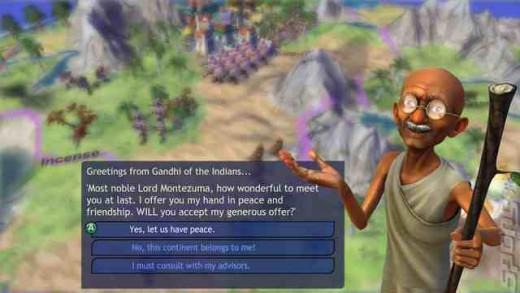
More than one way to skin a cat
By the time you've gotten to know the locals, you've had some combat experience, your city is civilised and you've got some decent technology, you'll probably want to decide how you want to win. There are four ways to achieve victory, and you can't win two ways in a single match. The first and most obvious is Domination.
- Domination: To win this way you have to get rid of most of your enemies, be it by completely eliminating them, or just taking enough of each leaders' settlements until you have the most. I find the safest way is to find an enemy and remove them early into the game so they don't have enough time to develop, as well as develop my own military for future enemies. Once they're out, I've got some more cities and can focus my sights on another foe.
- Economic: To win this way you have to get 20,000 and buy the World Bank wonder. This is a very simple way, but it requires you to sacrifice a lot of science production for gold production, meaning many buildings and units will be delayed to fill your purses. You also have to have quite a lot of tech in Banking before you can build the World Bank wonder and win. It may be simple, but make too many enemies and unwisely spend gold, and it can be incredibly hard.
- Cultural: To win this way you have to have 20 Great People spread across all of your cities, and then build the United Nations wonder. This is achieved very similarly to the Economic victory, where you have to get enough followers and support in order to get more culture points and have more land.
- Technological: This was the final victory I had experienced and it sure is tough. To win this you have to build a space station and arrive at Alpha Centauri. This requires you not only to choose all kinds of technology (you're prompted in between turns by a scientific advisor to choose one, which allows you to build more units and such), but it also requires you at the end to build 4 different objects for this space station. Even then, the space race isn't over because the station itself needs to travel for a few turns - only then do you achieve full victory.
Fighting the good fight
Out of all the ways to win the game, the Domination one is by far the most developed one and you can see that Firaxis - the game's developers put a lot of time and effort into this. While it may be cheap and is mostly down to RNG (Random Number Generators), it's still a rewarding process when you're outnumbered or outgunned, but still win, or are holding a desperate defence against an unstoppable foe. Combat is simply bringing one of your units to another, and engaging them. It's all down to your offense versus their defence numbers as though it's Top Trumps, and difficulty/terrain also help tip the odds in the favour of those attacking and defending. I wouldn't say anything is particularly over or underpowered, save for the catapults which break as soon as either side touches them (how you get units to 'support' it when in combat I've no idea)., so in all it's fair for the most part.
Capturing cities couldn't be simpler either, though maybe attacking certain districts and buildings whilst doing a raid would've made the experience far more fun. It works in the same way as one engages an enemy in the open - attack the city, and hope that your offence is stronger than their defence, which is likely to be Archer Armies (because few enemies get further than that in their defence). Oddly enough you could have twice as strong an offence as an enemy's defence, and could still be destroyed (knights and horsemen are the best example of this), because it's mostly down to luck, and the numbers either party have are just modifiers of how well they will perform.
As simple as the combat and city storming is, it's very entertaining to watch, especially when you're up against masses surrounded your city and just blowing them to smithereens. My favourite battles have to be the naval ones, simply because Galleys are often used against the best aquatic fighter there is - the Battleship!
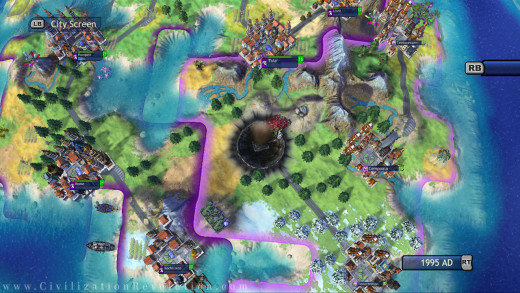
Rising Tensions
It's inevitable to meet new people, and it's best to get the handshakes and awkward speeches out of the way early, otherwise they'll overrun your settlement and be vastly superior to you in almost everything. This is great, seeing other leaders and what their capabilities are when they reach a certain era; it makes the game feel more alive, and it's what Doshin the Giant was missing - other beings. But in this game every faction serves to annoy you because they will bicker and rant, trying to get every single scrap of technology and research from you they can, otherwise they'll threaten to go to war, and I'm sure you don't want that. Unless you want a domination victory, in which case, you do.
I've got no problem with leaders coming to my doorstep but surely they'd want to ask if we could trade goods like ore, timber, incense and fish? No, they enter the heart of my kingdom with very few forces to protect their city let alone invade anything outside of their borders and they demand that I hand over my most important and used technology for a measly 4 turns of peace? After politely sending them on their way rather than Sparta-kicking them into a well, they're asking for peace not long after. Why can't I ask for the help of other nations, and why can't they request me to help? Everybody in this game is your enemy, and if they say they want peace, wait another 15-20 turns and they will take your head clean off without a care. Nobody goes against each other, and this is a big problem - Bismarck never tells me that Cleopatra has sent spies to his base; Isabelle never requires aid after being attacked by Napoleon.... this removes a lot of the fun from the game because I'd like to appease and threaten others, but they just shrug everything I do off, or get crushed underneath my armies.
What's worse is that you don't know what you've done to aggrevate your once-allies, as they always go on about your "pretentious snobbery" or your "capitalist greed" (using the same lines over and over; c'mon Firaxis, add some more dialogue will you?). Trading with them doesn't keep them happy for long and wiping out other nations still gets you the response of your best friend, "You stand in the way of our plans for world domination". Clearly there was too little going into this aspect. Concluding my thoughts on nations and negotiations, your advisors don't say much either - the Military advisor will always say that the [insert empire name here] is weak and shouldn't be feared, and the Domestic advisor will only tell you off if you've got Democracy or not (as the Democrats within your city don't allow you to go to war without causing a day's worth of anarchy). It's not big and it's not clever to leave out such half-baked concepts, which can indeed cause volatile effects on the game.
Looks and Sounds
This game looks fantastic and the high contrast and gamma look of this game, as well as the comical character models make the game all the more friendly looking. While I would say it's child-friendly, I think it's much more approachable for 7+, and I think with some help from adults, it's easy to turn a platforming child into a strategy gaming child - after all, childhood gaming is the best time to choose a genre and franchise to remain loyal to it. Many strategy games out there try too hard to be fancy (I'm looking at you Endwar), and while some are gorgeous, you can always expect more from things like animations, dead units fading away or sinking into the ground, building animations and even the caretaker going to the lavatory in the HQ building. But with Civ-Rev, that's not the case because it's already fanciful enough and each unit is easily distinguishable from the next. Your advisors change their uniform each era, further showing off animations and character design.
The environments too are really nice, especially the different settlements (sixteen different building types for sixteen different empires) and they're all fitting. However I still think the American ones with their high-rise towers are the finest, making it look like a powerful city bustling with life and advances in technology.
The sound's really good particularly that theme though it is a bit plinky-plonky, and the dialogue could be done properly rather than how the Sims talk (Weeble moo blaba!). If there were appropriate accents for it too, the sound would be perfect in my books!
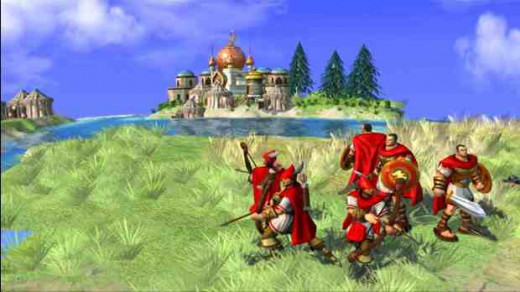
Conclusion
I'm afraid that's all there is to this game, but if you feel as though I've left something out, please fill me in on the comments below and I'll update this review as soon as I can. The final verdict for this game is a whopping 9 OUT OF 9, as well as the "More Bang for your Buck" accolade! Civilization Revolution is a fantastic addition to the strategy game genre and quite easily the best game to recommend to someone new to the genre, and has endless replayability because of how many possibilities there are to winning, and how fun it is to compete against NPCs. Because I've not played any of the multiplayer aspects of this game I simply can't comment on them. But what I can tell you is that this game is GREASY GAMER MUST BUY, and you can't afford to miss out on it. If you plan on playing strategy games, or feel the need to get back into them, Sid Meier does an excellent job of telling you how!
Until the next time, I wish you all a pleasant day! Thanks for reading!
Aspect
| Score
| Opinion
|
|---|---|---|
Gameplay
| 9
| Easy to pick up and play, with informative and remindful tutorials to help new players to the game and the strategy genre.
|
Lifespan
| 8
| Each match can last around 6+ hours, longer depending on difficulty and which kind of victory you attempt.
|
Control
| 7
| Fluent, though a little irresponsive at times. Doesn't take advantage of voice commands or PS3 Sixaxis.
|
Visuals
| 9
| Good all 'round, with a nice art style which aids in appeal and friendliness.
|
Sounds
| 6
| Very few tracks but still good. Dialogue needs major adjustments though, but is acceptable.
|
Replay Factor
| 9
| With 4 different victories and difficulties, as well as 16 leaders, you have a ton of possibilities to explore! Definitely one of the most replayable games of my collection.
|

